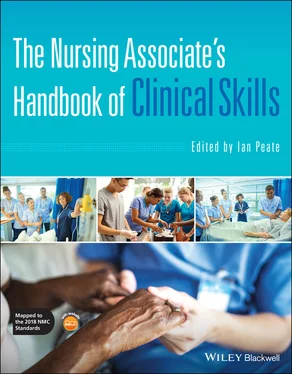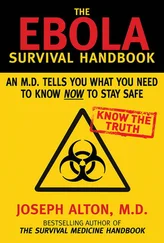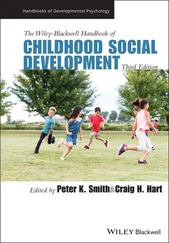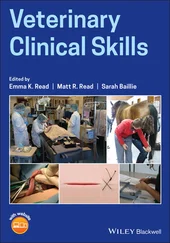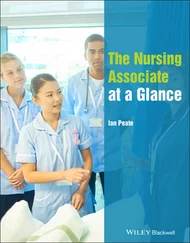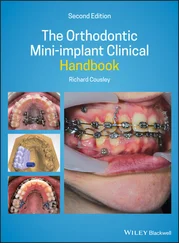The Nursing Associate's Handbook of Clinical Skills
Здесь есть возможность читать онлайн «The Nursing Associate's Handbook of Clinical Skills» — ознакомительный отрывок электронной книги совершенно бесплатно, а после прочтения отрывка купить полную версию. В некоторых случаях можно слушать аудио, скачать через торрент в формате fb2 и присутствует краткое содержание. Жанр: unrecognised, на английском языке. Описание произведения, (предисловие) а так же отзывы посетителей доступны на портале библиотеки ЛибКат.
- Название:The Nursing Associate's Handbook of Clinical Skills
- Автор:
- Жанр:
- Год:неизвестен
- ISBN:нет данных
- Рейтинг книги:4 / 5. Голосов: 1
-
Избранное:Добавить в избранное
- Отзывы:
-
Ваша оценка:
- 80
- 1
- 2
- 3
- 4
- 5
The Nursing Associate's Handbook of Clinical Skills: краткое содержание, описание и аннотация
Предлагаем к чтению аннотацию, описание, краткое содержание или предисловие (зависит от того, что написал сам автор книги «The Nursing Associate's Handbook of Clinical Skills»). Если вы не нашли необходимую информацию о книге — напишите в комментариях, мы постараемся отыскать её.
The Nursing Associate’s Handbook of Clinical Skills
The Nursing Associate’s Handbook of Clinical Skills
The Nursing Associate's Handbook of Clinical Skills — читать онлайн ознакомительный отрывок
Ниже представлен текст книги, разбитый по страницам. Система сохранения места последней прочитанной страницы, позволяет с удобством читать онлайн бесплатно книгу «The Nursing Associate's Handbook of Clinical Skills», без необходимости каждый раз заново искать на чём Вы остановились. Поставьте закладку, и сможете в любой момент перейти на страницу, на которой закончили чтение.
Интервал:
Закладка:
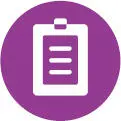 Further information on safe storage of manually generated records should be read locally as care providers will have requirements that each nursing associate must be aware of.
Further information on safe storage of manually generated records should be read locally as care providers will have requirements that each nursing associate must be aware of.
Finally, in Section 10, nursing associates are reminded to collect, treat and store all data and research findings appropriately. While many nursing associates may not consider themselves to be part of a research team, much of the data that is recorded during day‐to‐day work could be used as valuable data in a research project. When considering data being used as part of a research project, the project will have been granted ethical approval from the organisation overseeing the study. This ethical clearance will include clarification of how data will be gathered, collected, stored, analysed and reported. Whether acting in the capacity of a data collector or indeed the researcher, it is imperative that the nursing associate follows the guidelines set in the research proposal that has been analysed by the relevant ethical body. What is very important to consider in this section is that often data is accessed retrospectively. If a research study, for example, was being conducted into whether turn charts were effective in the prevention of pressure ulcers, the researcher may look at records relating to previous admissions where patient outcomes are already known. This puts an onus on nursing associates to ensure that all records are clear and accurate as all records could potentially form part of a research study. This final requirement has so many close relations with the other requirements of section 10 of The Code (2018a) that it clearly demonstrates how important record‐keeping is professionally.
Having considered record‐keeping from a professional perspective and addressed all the aspects described in The Code (2018a), it is clear to see that record‐keeping should be fundamentally straightforward; however, there are many strands to record‐keeping that are so intertwined that it is difficult to do one without the other. For example, to keep a clear record, it has to be legible, dated, timed and so on. In the next part of this chapter, the legal perspective will be addressed in an attempt to demonstrate that the reason nursing associates have to keep clear and accurate is that a number of different Acts and pieces of legislation may require records to be scrutinized.
From a Legal Perspective
This chapter cannot attempt to compete with the many texts that have been written on the legal duties of a nurse. See Table 8.1for an overview of some elements of legislation that impact on record‐keeping.
Table 8.1 Some aspects of legislation that impacts record‐keeping.
| ASPECT OF LEGISLATION | DISCUSSION |
|---|---|
| Access to Health Records Act (1990) | This relates to records of deceased patients since 1 November 1991; however, access is only allowed if the record would not cause harm to any living person. |
| Access to Medical Reports Act (1988) | Allows individuals to apply in writing to access their health records and then allows patients to disagree with a report or to correct any inaccuracies; however, access can be denied by a doctor if they feel that the record could harm the individual or that the record also has information relating to a third party who has consented to the release of the record. |
| Civil Evidence Act (1995) | This Act allows the use of records as evidence in civil legal proceedings |
| Computer Misuse Act (1990) | This Act created three separate offences. The first is the unlawful access of computer records, the second is access with the intent to commit further offences and the third is the unauthorised modification of computer materials. |
| Data Protection Act (1998) (updated in 2018) | The Data Protection Act regulates how personal data is processed regardless of how it is stored, i.e. manually or digitally. Processing data includes how a record is stored, obtained, recorded in the first instance, used (including disposal), disclosed and shared. Eight principles underpin this Act. The Data Protection Act was updated in 2018 to include General Data Protection Regulation (GDPR) standards from the European Union. The Act was updated to ensure that the law was fit for the digital age and the ever‐increasing amount of personal data that is being generated and being processed. More about the Data Protection Act can be accessed through an internet search or nursing textbook. |
| Freedom of Information Act (2000) | This Act makes it a requirement for public bodies such as the NHS to make records available if asked for them. There are restrictions such as public interest whereby it may be judged that it is not in the public interest to have some records made public. |
| Public Interest Disclosure Act (1998) | This Act makes it clear that any record can be made public if the disclosure is in the public interest. This is often referred to as whistleblowing and can be described as the time that confidentiality can be broken in the instance of a ‘qualifying disclosure’ |
Supporting Evidence
Griffith (2015) links the professional and legislative aspects of record‐keeping very well.
To summarise, this brief overview of a selection of some Acts that relate to record‐keeping have been included for a good reason. It is to emphasise that all records that are made during the daily work of the nursing associate are compliant with the professional standards discussed earlier in this chapter as many of these Acts require that the record could be accessed historically. This means that a record that has been made today could be scrutinized at any time in the future; therefore, maintenance of a clear and accurate record is an essential aspect of the nursing associate’s role.
Touch Points Revisited
Nursing associates must ensure that documentation is in a format that can be followed and understood by others
All records made by a nursing associate must be clear, accurate and unambiguous
Local policies on safe storage of records must be read, understood and adhered to
References
1 Access to Health Records Act . (1990) [online] Available: https://www.legislation.gov.uk/ukpga/1990/23/contents. Accessed 21 August 2019.
2 Access to Medical Reports Act . (1988) [online] Available: https://www.legislation.gov.uk/ukpga/1988/28/contents. Accessed 21 August 2019.
3 Civil Evidence Act . (1995) [online] Available: https://www.legislation.gov.uk/ukpga/1995/38/contents. Accessed 21 August 2019.
4 Computer Misuse Act . (1990) [online] Available: https://www.legislation.gov.uk/ukpga/1990/18/contents. Accessed 21 August 2019.
5 Data Protection Act . (1998) [online] Available: https://www.legislation.gov.uk/ukpga/1998/29/contents. Accessed 21 August 2019.
6 Data Protection Act . (2018) [online] Available: http://www.legislation.gov.uk/ukpga/2018/12/contents/enacted. Accessed 21 August 2019.
7 Freedom of Information Act . (2000 [online] Available: www.legislation.gov.uk/ukpga/2000/36/pdfs/ukpga_20000036_en.pdf. Accessed 21 August 2019.
8 Griffith, R. (2015) Understanding the code: keeping accurate records, British Journal of Community Nursing, 20(10): 511–514.
9 Nursing and Midwifery Council. (2018a) The code: professional standards of practice and behaviour for nurse and midwives and nursing associates, London: Nursing and Midwifery Council.
Читать дальшеИнтервал:
Закладка:
Похожие книги на «The Nursing Associate's Handbook of Clinical Skills»
Представляем Вашему вниманию похожие книги на «The Nursing Associate's Handbook of Clinical Skills» списком для выбора. Мы отобрали схожую по названию и смыслу литературу в надежде предоставить читателям больше вариантов отыскать новые, интересные, ещё непрочитанные произведения.
Обсуждение, отзывы о книге «The Nursing Associate's Handbook of Clinical Skills» и просто собственные мнения читателей. Оставьте ваши комментарии, напишите, что Вы думаете о произведении, его смысле или главных героях. Укажите что конкретно понравилось, а что нет, и почему Вы так считаете.
